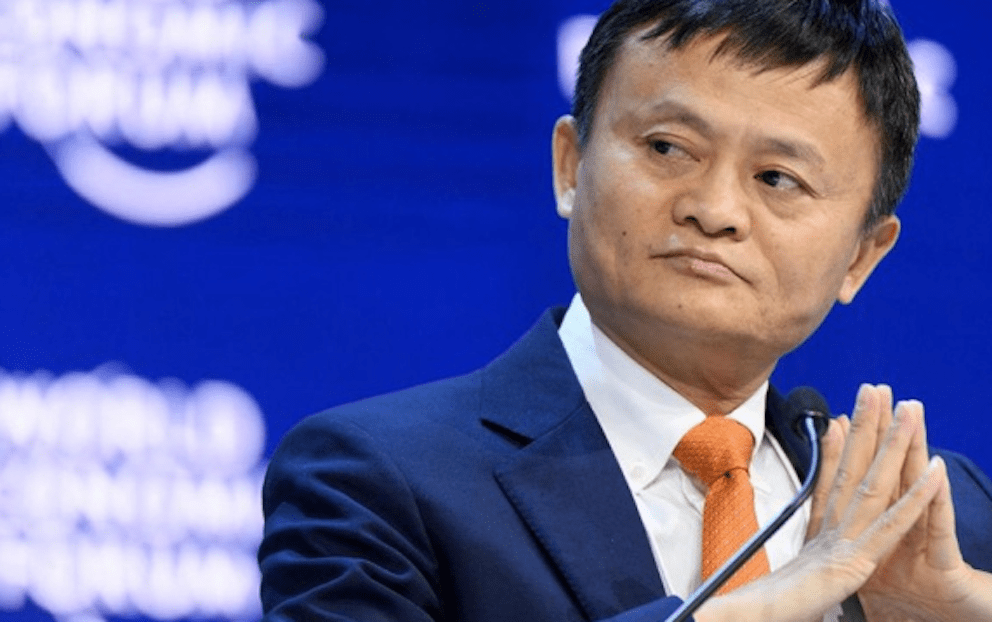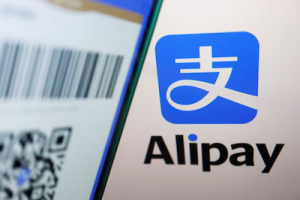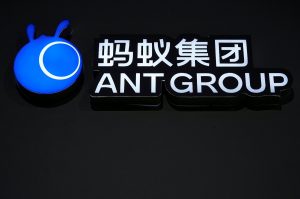Closer study of China’s new microfinance rules makes the initial public offering proposed by Ant Finance Group look increasingly unlikely – or that it might only happen on a much smaller scale at some unknown point in the future.
On Tuesday November 17, Fang Xinghai vice chairman of the China Securities Regulatory Commission (CSRC), commented on Ant’s IPO at the 3rd Innovation Economy Forum, saying he didn’t know the new timetable for the group’s proposed listing.
Talking about how companies respond to changes in the regulatory environment, he said: “I don’t know the timetable for the listing of Ant Group. It depends on how the government will restructure the financial regulatory framework in its next step, and it also depends on how companies respond to changes in the regulatory environment,” Fang was quoted as saying by Caixin news.
At the same meeting, Fang Xinghai also noted that international investors had responded very well to the suspension of the Ant IPO. He pointed out that in the past week, capital inflows from international investors and others based in Hong Kong had also been quite good.
“We will continue to observe the attitude of international investors on this,” Fang Xinghai said.
New rules ‘completely change micro-lending’
The ‘Interim Measures for the Administration of Online Small Loans’ proposed recently by Chinese regulators completely change the future business model for Ant Finance and other micro-lenders, analysts now say.
A recent academic discussion about the measures by experts at a meeting in Fudan University in Shanghai, which Caixan reported on Thursday November 19, clarified many of the issues.
The saga started on October 31, when Vice Premier Liu He held a special meeting of the Financial Stability Committee and noted that “the current rapid development of financial technology and financial innovation must handle the relationship between financial development, financial stability and financial security.”
He said they “needed to encourage innovation and carry forward the entrepreneurial spirit, while also strengthening supervision, and comprehensively incorporating financial activities to make sure all financial groups were supervised in accordance with the law to effectively prevent risks”.
“It is necessary to improve the fair competition review mechanism, and strengthen the anti-monopoly and anti-unfair competition law and to make sure they are enforced.”
Opinions of regulators were clearly directed at the current online lending platforms, especially Ant Financial, according to Caixin.
The move came after Jack Ma, the founder of Alibaba and a key leader of Ant Group, made a speech highly critical of China’s financial system.
Subsequently, on November 2, officials from four departments jointly conducted interviews with “relevant personnel” of Ant Group, on the same day, the Interim Measures for the Management of Online Small Loans (Draft for Comment) was issued by the China Banking and Insurance Regulatory Commission.
Regulators nervous before Ma’s speech
There are several reasons why such an opinion was issued at this time – regulators were already nervous because the amount of online micro-lending in China is huge.
As of September 2020, there were 7,227 online small lenders nationwide, with a loan balance of 900.27 billion yuan (close to US$137 billion).
These online small loans have accumulated into a huge risk bubble in the Chinese economy.
Online micro-lending risks stem from the fact that the loan amount to the borrower is determined only by credit and not guaranteed by collateral. The leverage of loan funds is high and “the current supervision of online micro-lending companies is insufficient,” the academics at Fudan said.
They also pointed out that there is high systemic risk. In around 2010, the ratio of Chinese residents with such debts was only about 18%, but a decade on, the figure has blown out to nearly 60%.
So, the debt ratio had increased quickly and had become a huge systemic risk for China’s financial system, they said.
The Chinese government, by habit, often gives a lot of rope to new endeavours, but then pulls back sharply when risks to “social stability” become apparent.
On October 25, Jack Ma delivered his now infamous speech at the Bund Financial Summit. Among his comments, he said: “China does not have systemic financial risks because China does not have a financial system”.
And, “the Basel Agreement [on supervision of banks worldwide] is a club for the elderly and is not suitable for developing countries.”
These and other challenging views, such as using a credit system to replace traditional mortgages, caused “widespread controversy in society”.
The regulators’ ‘Interim measures’ are set out over seven chapters and 43 articles, which can be roughly divided into three parts: general rules, business and operation regulations; supervision and management; and legal responsibilities.
It is likely that these measures were planned long before Ma’s speech, and before the proposed Ant Group IPO.
‘Killing the monkey to scare the chickens’
Chinese legislators often like to “kill the monkey to scare the chickens” – to take down a high-profile actor to scare smaller players so that they behave.
With Ant Group given such a public admonishing, the other 7,000 micro-lenders in China will all be paying close attention to the new rules.
As explained by the Fudan academics, the macro economic background that led to the regulators’ moves stem from the fact that China is currently in an economic downturn.
At the same time, due to the impact of the trade war and the epidemic, small, medium and micro enterprises are finding it increasingly difficult to operate and urgently need financial support.
Citizens are also affected by the economic downturn. The resulting decline in income combined with the rise in prices, the continuous decline in the savings rate, and the increase in leverage have increased systemic risks.
The economy is in a downward cycle, with SMEs having difficulty operating. China’s GDP growth dropped from 6.75% in 2018 to 6.11% in 2019, and is expected to fall to less than 5% this year.
Due to the impact of the epidemic, small and medium-sized businesses are struggling because of declining exports, labour difficulties, and rising raw material costs. In the first half of 2020, more than 460,000 companies shut down.
These companies urgently need financial support.
Residents’ income has fallen, while prices and debts have risen. In the first three quarters of 2020, the cumulative disposable income of Chinese residents was 23,781 yuan, an increase of 0.6% year-on-year, while the CPI rose by 3.3% year-on-year.
The faster growth of prices relative to income has led to greater pressure on cash for household consumption, while loans for families have continued to increase and savings rates have slumped.
All of this is likely to lead to systemic financial risks.
In regard to the savings rate of residents, economist Zhou Xiaochuan said: “The savings rate of the younger generation in China is declining significantly, and young people rely on borrowing too much to consume excessively.”
With this background in mind, the regulators’ numerous measures basically upend and chop up the micro-lending business, pushing lenders back to the traditional lender of choice – banks.
Government authorities, industry analysts and experts have all given their opinions in regard to the online micro-lending business.
‘The Wrong Path’
China’s Vice President Wang Qishan said: “China’s finances cannot take the wrong path of speculation and gambling, it cannot take the wrong path of the financial bubble, and cannot take the evil path of the Ponzi scheme.
“We must adhere to the basic laws of financial development and the basic precepts of the financial industry, closely follow the production and operation of enterprises, seize new market trends and new opportunities, support key areas and weak links of economic development, so that financial services and the real economy can promote each other and develop healthily… (We must) prevent and defuse financial risks, insist on equal emphasis on financial innovation and strengthening supervision.”
Meanwhile, a China Merchants Bank analyst said: “The content [of the measures] is not aimed at Ant Financial, but aimed at the entire small loan industry.
Preventing the small loan industry from evolving into loan sharks, which will kill the people at the bottom. It is not difficult to see that in the future, online small loan companies [now] will be in line with bank supervision in terms of leverage and business scope.”
Given the way things have played out, it was interesting to hear the reaction of the country’s richest man, who was at the centre of all this hullabaloo.
According to NTD media, Jack Ma recently made more “visionary” comments, saying it is good to have a relationship with the CCP [the Chinese Communist Party] – but not a marriage.”
• By Chris Gill
This page was upgraded on January 21, 2022 for style purposes.
ALSO SEE:
China suspends huge Ant listing over regulatory concerns
China’s Ant IPO suspension will create aftershocks
Ant IPO may be delayed six months, chairman says























